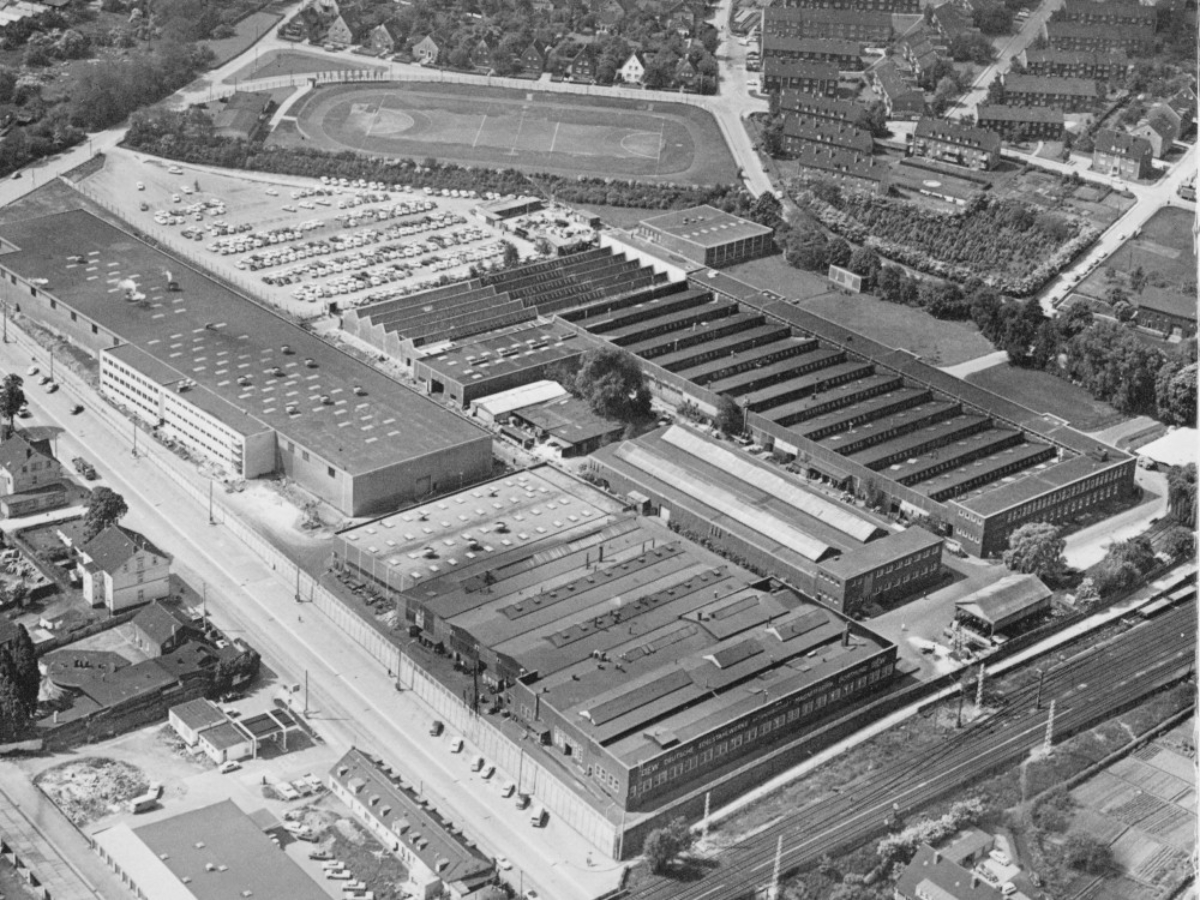
The Company
History
Tridelta Magnetsysteme in Dortmund.
The History of Tridelta Magnetsysteme
In 1997, Thyssen Magnettechnik GmbH, now known as Tridelta Magnetsysteme GmbH and Tridelta Siperm GmbH, was acquired in Dortmund. This expanded the range of magnetic products. The companies have a production history of more than 90 years and are today among the most experienced specialists in magnetic materials, components, and systems, as well as sintered materials.
Tridelta Magnetsysteme GmbH delivers solutions to its customers for their specific magnetic application problems in the form of various magnetic systems, based on its extensive knowledge of magnetism.
Customers benefit from the diverse synergies and innovative strength of the group. Experienced engineers and application technicians provide individual consultation and develop technically and economically optimal solutions together with customers.
1920 – Hüttenwerk
The “Dortmunder Union” steelworks begins production of permanent magnets.
Manufacturing of AlNiCo magnets.
1927 – Founding
Founding of the German Stainless Steel Corporation (Deutsche Edelstahlwerke Aktiengesellschaft, DEW). The magnet production of Dortmunder Union becomes part of this corporation.
1940 – Construction
Construction of a new manufacturing and office building in Dortmund Aplerbeck.
1948 – Systems and Equipment
of permanent magnetic systems and devices.
1952 – Ferrite Magnets
Manufacturing of ferrite magnets.
1953 – Sintered Materials
Manufacturing of highly porous sintered materials
1975 – Thyssen Edelstahlwerken
1975 DEW is incorporated into “Thyssen Edelstahlwerke” (TEW).
1978 – Samarium-Cobalt Magnets
Manufacturing of samarium-cobalt magnets.
1985 – Neodymium Magnets
Manufacturing of sintered neodymium magnets.
1992 – Fusion
Merger of the stainless steel and steel sectors and the transfer of the magnet division to the Electrical Steel Company Bochum (EBG). Renamed to Thyssen Magnettechnik GmbH.
1994 – Neodymium Magnets (Neolit)
Manufacturing of hot-pressed neodymium magnets (Neolit).